Most people in the U.S. are bullish on the role AI will play in health care in 2024, especially to lower access barriers to care and to diagnose and detect health conditions. Two new studies point to the consumerization of AI in healthcare, from Medtronic and Deloitte. This post weaves their findings together and suggests some planning points for 2024.
Medtronic collaborated with Morning Consult to poll 2,213 U.S. adults in late September 2023 to gauge peoples’ perspectives on AI and health care.
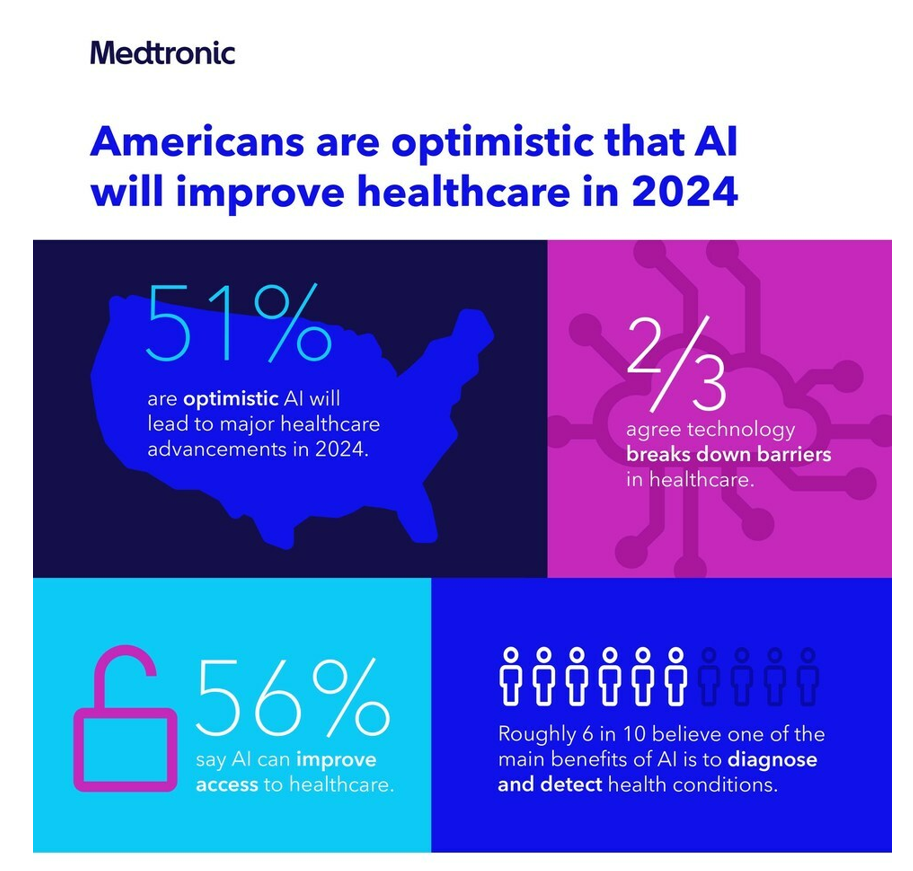
With such optimism among health consumers comes some reality-checking on the barriers to AI adoption in health care. Four in five people said that AI has the potential to make mistakes. Most people also noted a lack of evidence for AI which could be an obstacle to AI adoption for health care in the U.S.
These concerns may be tempering some patients’ preferences in collaborating with a doctor using AI: only 1 in 3 consumers told Medtronic they would prefer to work with an AI-using physician.
But this should change over time as more patients are exposed to AI-infused care. The most likely clinical areas patients would embrace, according to the Medtronic study, would be physicians using AI to analyze digital images and to detect cancer.
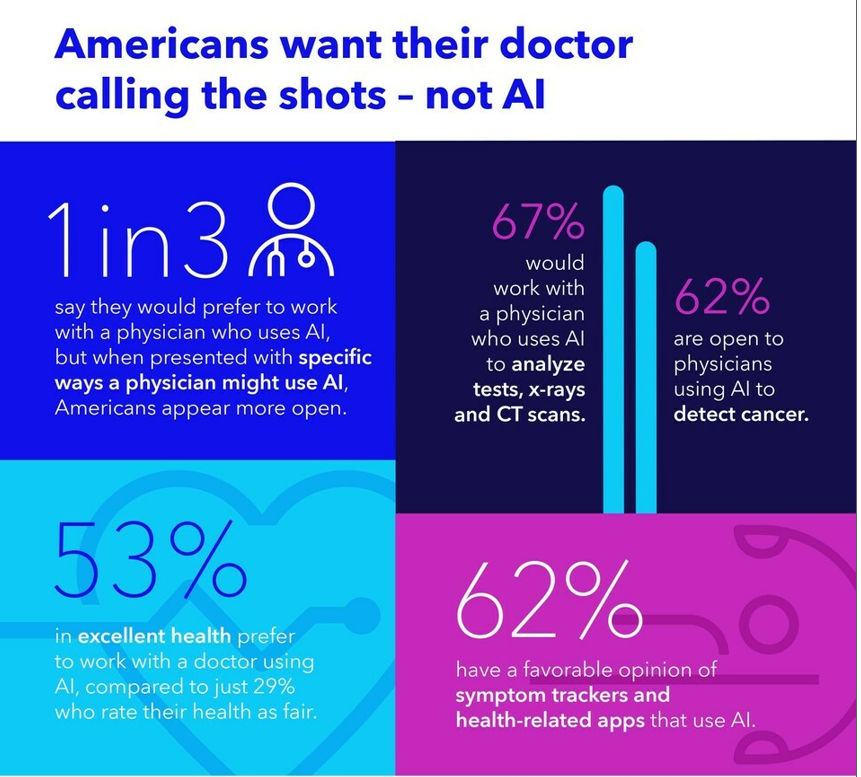
Furthermore, two-thirds of consumers already have a favorable opinion of apps and symptom trackers that are using AI.
The Medtronic study also captured a data point worth further exploring: that 53% of patients reporting excellent health would prefer to work with a doctor using AI, versus only 29% of patients who self-rate their health as “fair.”
There could be several reasons that patients in poorer health could be less keen on clinicians using AI including but not limited to health literacy, technology literacy, and lack of or less trust in new technology,
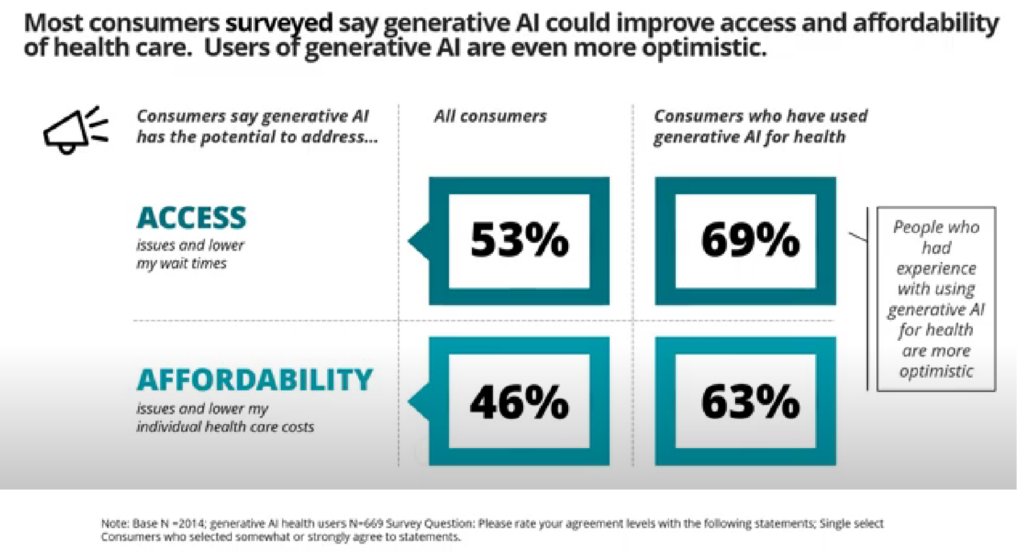
Health Populi’s Hot Points: Deloitte’s consumer survey covered a lot of ground, from the potential access and affordability impacts of AI on health care to peoples’ level of comfort with various health care tasks that AI can support and inform.
Deloitte’s 2023 Health Care Consumer survey polled 2,014 US adults and found that one-half overall felt that AI had the potential to improve access to care (such as lowering wait times for appointments), and nearly one-half so said AI could improve affordability in the form of lowering individuals’ health care costs.
These hopeful numbers on access and affordability increased among those consumers who have already used generative AI for health.
That was nearly 50% of those surveyed, saying they are already using GenAI.
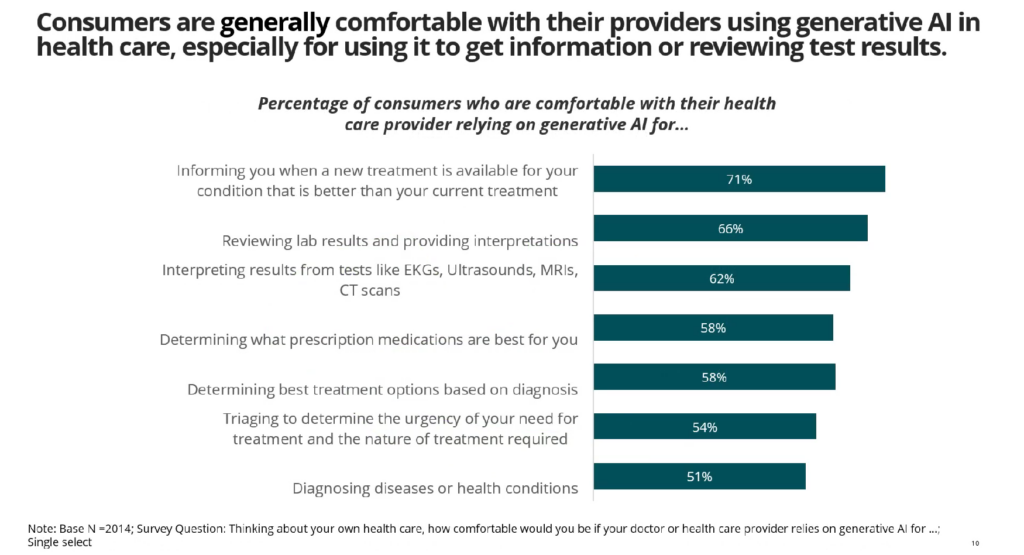
Among all consumers in the Deloitte research, over half would be comfortable with their health care provider relying on GenAI for:
- Identifying a new treatment for an existing condition being treated
- Reviewing lab tests and digital images and providing interpretations
- Determining optimal prescription drugs for the individual, and
- Triaging the patient based on urgency of need and nature of treatment required.
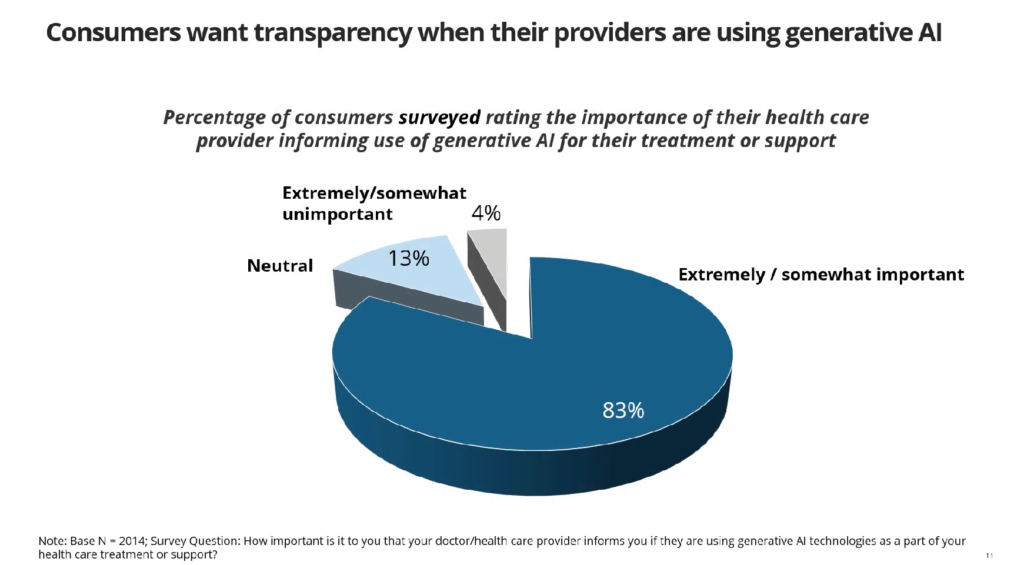
A key to building trust in any new technology deployed for health care is education and transparency — where Deloitte found the vast majority of consumers (87%) rated the importance of a provider informing their use of GenAI for medical treatment would be extremely or somewhat important.
The issue of trust in Americans’ collective view, especially in science-related areas of daily life, will be important to track and bolster.
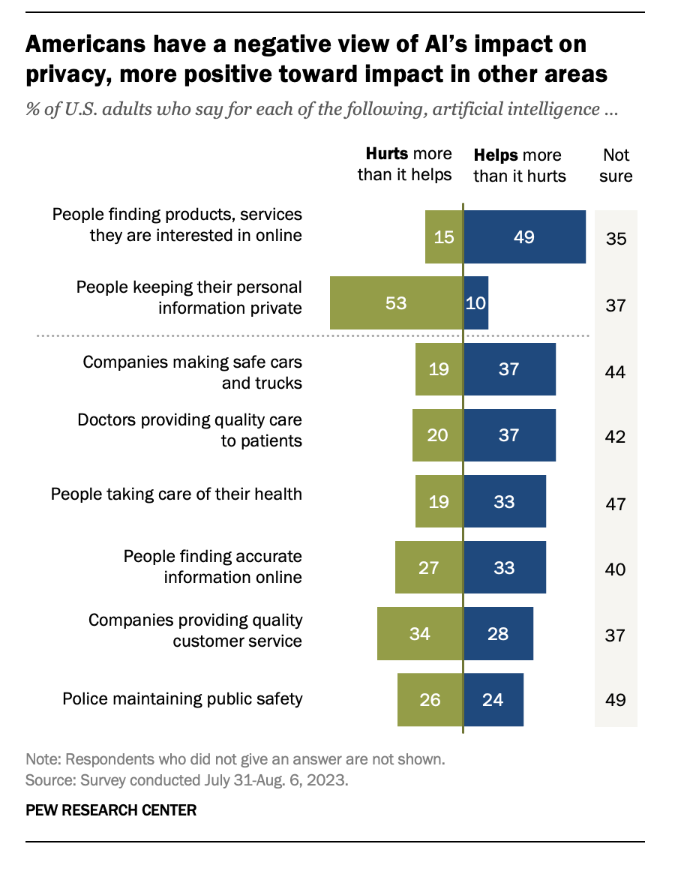
In research published in August 2023, the Pew Research Center observed, in their words, “growing public concern about the role of artificial intelligence in daily life.”
The bar chart from the Pew study found various levels of concern with AI depending on the area for which it would be deployed. The simplest function seen as “helping more than it would hurt” was found for people seeking products and services they are interested in online. Here 49% of consumers told the folks at Pew that this function would help more than hurt, which was the metric the Pew survey used to gauge peoples’ AI sentiments.
The most “hurt-ful” area in AI impact was seen as people keeping their personal information private.
The most “help-ful” area for AI impact was found for companies making safe cars and trucks, and for doctors providing quality care to patients.
At this very early stage of AI adoption in health care, it appears that Americans tend to be techno-optimistic. It will behoove all stakeholders who interact with consumers for their and their families’ health and health care to be informative, engaged, transparent, and design-ful for privacy and equity over the coming months and early years in our journey with AI baked into health.




 Interviewed live on BNN Bloomberg (Canada) on the market for GLP-1 drugs for weight loss and their impact on both the health care system and consumer goods and services -- notably, food, nutrition, retail health, gyms, and other sectors.
Interviewed live on BNN Bloomberg (Canada) on the market for GLP-1 drugs for weight loss and their impact on both the health care system and consumer goods and services -- notably, food, nutrition, retail health, gyms, and other sectors. Thank you, Feedspot, for
Thank you, Feedspot, for  As you may know, I have been splitting work- and living-time between the U.S. and the E.U., most recently living in and working from Brussels. In the month of September 2024, I'll be splitting time between London and other parts of the U.K., and Italy where I'll be working with clients on consumer health, self-care and home care focused on food-as-medicine, digital health, business and scenario planning for the future...
As you may know, I have been splitting work- and living-time between the U.S. and the E.U., most recently living in and working from Brussels. In the month of September 2024, I'll be splitting time between London and other parts of the U.K., and Italy where I'll be working with clients on consumer health, self-care and home care focused on food-as-medicine, digital health, business and scenario planning for the future...